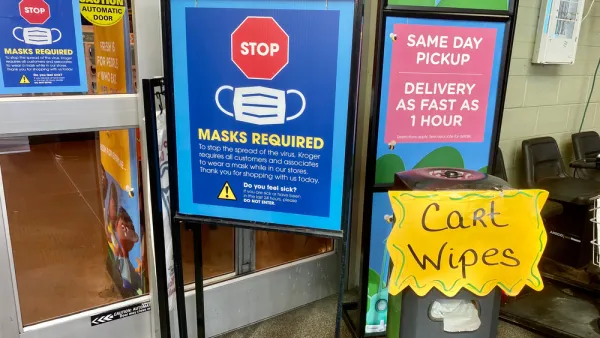On May 22, the World Health Organization declared Latin America the new epicenter of the coronavirus pandemic. Brazil is second in the world in reported cases after the U.S., and Ecuador, Peru, Chile, and Mexico are also suffering disproportionately.

In addition to time, the region had an advantage similar to the East Asian success stories—it had dealt with infectious disease recently: the 2015–2016 Zika virus epidemic. Countries took the threat serious and imposed restrictions.
Chile issued a 90-day national emergency declaration within days of its first cases, restricting freedom of movement and banning public gatherings. Argentina closed its borders. In Peru, President Martín Vizcarra imposed perhaps the strictest measures in the region, allowing people to leave their homes only to buy food and medicine.
But despite the diversity in approaches — from the draconian in Peru to the laissez-faire in Brazil — many countries are ending up in roughly the same place: watching cases surge, with little political or institutional capacity to flatten their ascent.
Favelas not conducive to social distancing
McCoy blames the failure on factors related to urban poverty plus related woes including "inequality, corruption, and plunging faith in institutions."
How it got to this point has been a case study in the difficulties of controlling a pandemic in the developing world. Policies such as social distancing and isolation — which must be maintained for weeks to have any effect — have proved simply untenable in countries where many people live crowded in urban slums [favelas] and must work every day to survive.
The projections for Brazil, which has the third-highest deaths after the U.S. and the U.K, are grim.
The Pan American Health Organization last week urged a recommitment to social distancing in Brazil to avert a calamity. Its projections showed that 88,000 people could die by August. Researchers at the University of Washington put their death toll still higher — around 125,000 by August.
The IHME model now projects nearly 166,000 deaths in Brazil by August 4. President Jair Bolsonaro has undermined the nation's response, scoffing at the need for social distancing, and, somewhat like President Trump, dismissing COVID-19 as a "little flu."
South America coronavirus dashboard
In deaths per capita, Ecuador, Brazil, Peru, and Chile, respectively, have the highest mortality, according to Worldometer. On June 7, more people died from COVID-19 in Chile than anywhere else in the world, with 649, followed by Brazil and the U.S. On June 8, Brazil was highest, with 813, followed by the U.S., India and Mexico.
Multi-media:
- NPR reported on the dire situation in Brazil and other Latin American countries in a 6-minute broadcast (with transcript) on June 3.
FULL STORY: Latin America had time to prepare for the coronavirus. It couldn’t stop the inevitable.

Analysis: Cybertruck Fatality Rate Far Exceeds That of Ford Pinto
The Tesla Cybertruck was recalled seven times last year.

National Parks Layoffs Will Cause Communities to Lose Billions
Thousands of essential park workers were laid off this week, just before the busy spring break season.

Retro-silient?: America’s First “Eco-burb,” The Woodlands Turns 50
A master-planned community north of Houston offers lessons on green infrastructure and resilient design, but falls short of its founder’s lofty affordability and walkability goals.

Test News Post 1
This is a summary

Analysis: Cybertruck Fatality Rate Far Exceeds That of Ford Pinto
The Tesla Cybertruck was recalled seven times last year.

Test News Headline 46
Test for the image on the front page.
Urban Design for Planners 1: Software Tools
This six-course series explores essential urban design concepts using open source software and equips planners with the tools they need to participate fully in the urban design process.
Planning for Universal Design
Learn the tools for implementing Universal Design in planning regulations.
EMC Planning Group, Inc.
Planetizen
Planetizen
Mpact (formerly Rail~Volution)
Great Falls Development Authority, Inc.
HUDs Office of Policy Development and Research
NYU Wagner Graduate School of Public Service




























